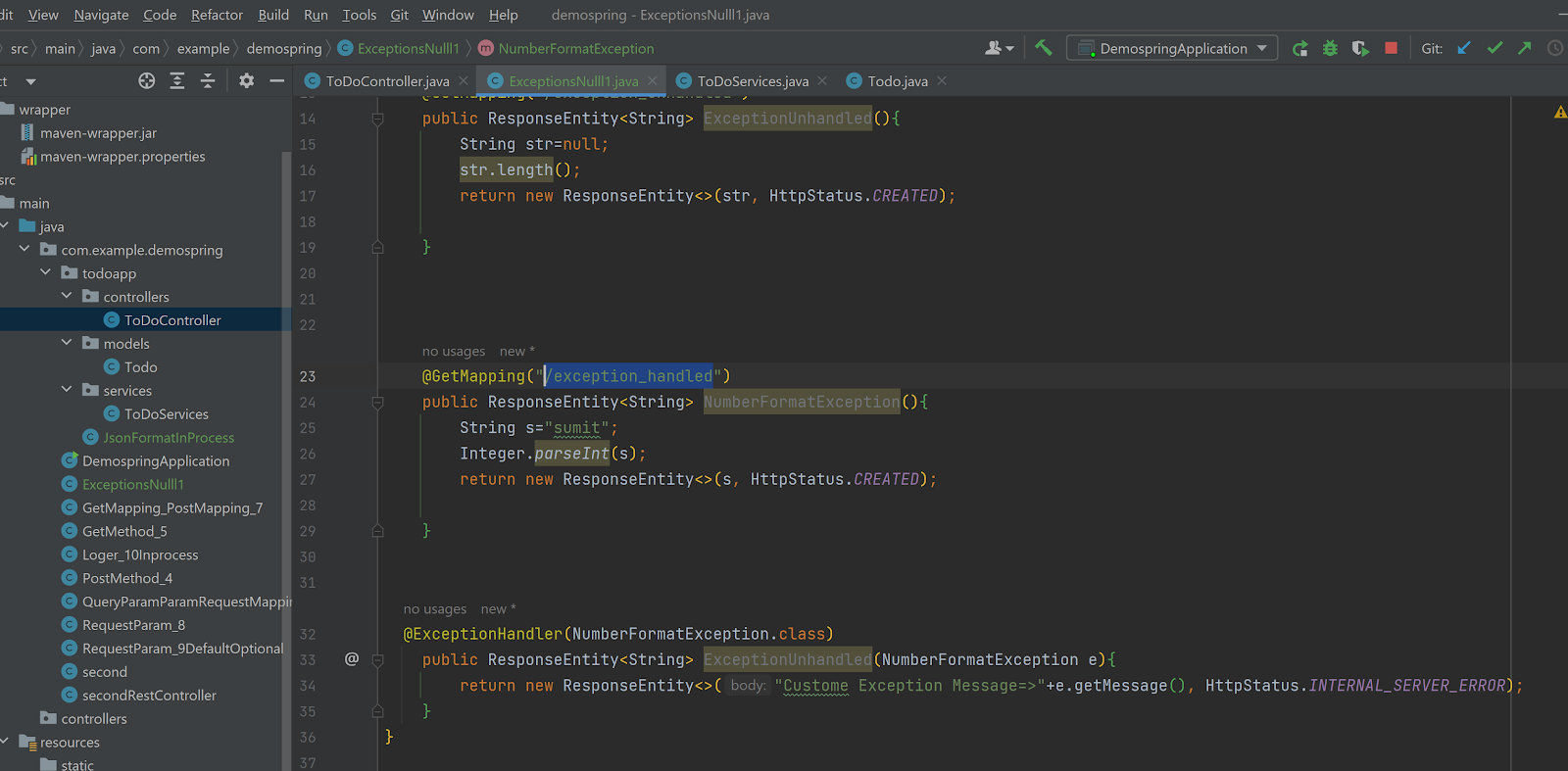package StudyPackage;
public class ThisKeyword {
//Default Constructor
ThisKeyword(){
this(5);
System.out.println("Default Constructor");
}
//Constructor with 1 parameter
ThisKeyword(int data){
this(5,6);
System.out.println("Int Constructor");
}
//Constructor with 2 parameters
ThisKeyword(int data,int data1){
System.out.println("Int Constructor with 2 Arguments");
}
public static void main(String[] args) {
ThisKeyword th=new ThisKeyword();//Calling Default
//
}
}
OutPut:
Int Constructor with 2 Arguments
Int Constructor
Default Constructor
public class ThisKeyword {
//Default Constructor
ThisKeyword(){
this(5);
System.out.println("Default Constructor");
}
//Constructor with 1 parameter
ThisKeyword(int data){
this(5,6);
System.out.println("Int Constructor");
}
//Constructor with 2 parameters
ThisKeyword(int data,int data1){
System.out.println("Int Constructor with 2 Arguments");
}
public static void main(String[] args) {
ThisKeyword th=new ThisKeyword();//Calling Default
//
}
}
OutPut:
Int Constructor with 2 Arguments
Int Constructor
Default Constructor
#this() is useful for calling the constructor. Matching constructors gets called based on parameters provided.
#Should be first line in constructor. 2 this() not allowed

No comments:
Post a Comment